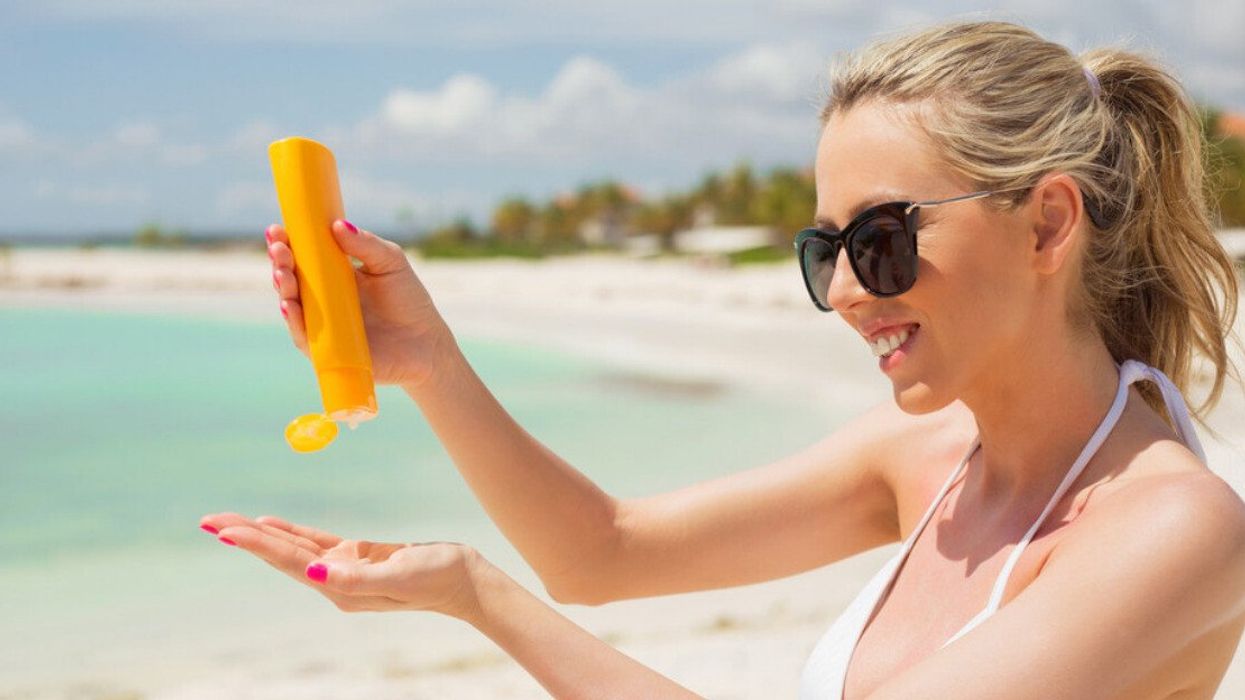
As temperatures heat up heading into summer, one item that should always be part of your skin routine is sunscreen.
However, with so many different types of lotions and creams out there, it can be confusing to know which sunscreen is the best option, especially when it comes to choosing an SPF rating.
SPF (skin protection factor) is a "unit measuring the protective ability of your sunscreen against UVB rays alone," according to McGill University, and it's the biggest number you'll see on most bottles of sunscreen.
While many of us may assume that a higher SPF offers more protection for our skin, that's not actually the case.
The University of Texas' MD Anderson Cancer Center outlines the differences in protection between the different SPF numbers. According to the cancer center, anything over SPF 30 doesn't make much difference.
They say SPF 15 sunscreen blocks 93% of UVB radiation, and SPF 30 blocks 97%. Now compare that that to an SPF of 50 which blocks 98%, and SPF of 100, which blocks 99% of UVB rays.
Dr. Lisa Kellett, a dermatologist in Toronto, says it all comes down to science and unfortunately, many people misunderstand what SPF actually means.
"SPF of 60 does not protect you twice as much as an SPF of 30," she told Narcity. "Nothing completely will protect you."
In an interview with Insider, Dr. Orit Markowitz, the director of pigmented lesions and skin cancer at Mount Sinai, reiterated why a high SPF in a sunscreen doesn't do what you would expect it to.
"As the SPF number goes up, protection against UVA goes down because of the way that the protective ingredients in the sunscreen interact, which is why SPF 100 is not recommended," Markowitz said.
Another issue, according to the Skin Cancer Foundation, is that a sunscreen with a high SPF creates a "false sense of security."
What that means is someone who uses a sunscreen with SPF 100 will think it's OK to stay in the sun for longer, may skip reapplying and may think it's unnecessary to cover up in other ways.
"They end up getting a lot more UV damage, which, of course, defeats the purpose," the foundation writes on its website.
So what do experts recommend?
The Skin Cancer Foundation recommends sunscreen with SPF of 15 or higher if you're inside for most of the day or outside for short periods of time. For those who spend a lot of time outdoors, an SPF of 30 or higher, water-resistant sunscreen is recommended.
It's also important to choose one that protects against both UVA and UVB rays.
Kellett adds that the best form of sunscreen is one that you will use over and over again.
"The most important thing is not the product itself. It's that you like the product and you liked the vehicle and that you use the product," she explained. "You will increase compliance if people are happier with the vehicle."
By "vehicle," he means the way you it on, whether it's a spray-on sunscreen or a cream.
Experts agree that sunscreen is an important step to protecting your skin, but advise that it shouldn't be the only method.
"You also have to use common sense in terms of sun avoidance (...) avoiding the sun between the hours of 10 and 2, seeking shade and using sun protective clothing and a hat," Kellett said.
This article's cover image was used for illustrative purposes only.
A High SPF Sunscreen Does Not Mean More Protection For Your Skin & Here's What Works Best
Source: News Article Viral


0 Comments